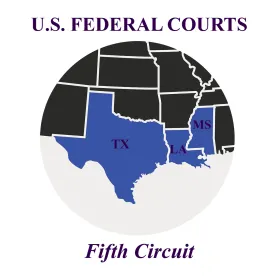The United States FRAND jurisprudence had a recent watershed moment in a decision that is sure to reverberate through the standard essential patent (SEP) world, and specifically SEP litigation in the United States. Earlier this week, a Fifth Circuit panel affirmed a jury verdict that found licensing offers made by Ericsson to HTC for Ericsson’s 4G SEPs complied with Ericsson’s FRAND obligations, the first jury verdict of its kind in the United States. This ruling is a significant victory for SEP owners, as the decision establishes that the United States will adjudicate willing licensee disputes, and therefore provides a useful first look into how US courts will tackle such cases going forward. In addition to the overarching importance of the justicability of willing licensee cases in the United States, also important is the Fifth Circuit’s express rejection of the applicability of patent damages related analyses in cases involving willing licensee disputes, such as apportionment based on the smallest saleable patent practicing unit (SSPPU), because willing licensee disputes are based in contract law rather than patent law.
The case, HTC Corp. et al. v. Telefonaktiebolaget LM Ericsson et al., No. 19-40566 (5th Cir. Aug. 31, 2021), involved licensing renewal discussions between HTC Corporation and HTC America, Inc. (“HTC”) and Telefonaktiebolaget LM Ericsson and Ericsson, Inc. (“Ericsson”) that began in 2016, to renew the third license agreement between HTC and Ericsson for Ericsson’s patents on 2G, 3G, and 4G technology. Previous license agreements yielded a $2.50 per unit rate on Ericsson’s patents to HTC, but in a March 2017 meeting, HTC offered a rate of only $0.10 per 4G device, which Ericsson rejected, leading to HTC filing a declaratory judgment action.
At trial the district court instructed the jury on FRAND:
Whether or not a license is FRAND will depend upon the totality of the particular facts and circumstances existing during the negotiations and leading up to the license. Ladies and gentlemen, there is no fixed or required methodology for setting or calculating the terms of a FRAND license rate.
HTC did not object to this instruction, but asked the court to include additional instructions (in particular, apportionment instructions based heavily on US patent law and a non-discrimination requirement of FRAND) in the final set of jury instructions, which the court rejected. The jury ultimately returned a verdict finding that HTC had not proven that Ericsson breached its FRAND obligations, even though neither Ericsson nor HTC had negotiated in good faith. On appeal, the Fifth Circuit panel held that HTC failed to demonstrate that the district court’s decision to omit HTC’s instructions was reversible error.
The Fifth Circuit noted that HTC’s proposed jury instructions were not substantially correct statements of law because breach-of-FRAND cases were not patent law actions, but breach-of-contract cases. Critically, the Court rejected HTC’s complaint that the district court did not instruct the jury on apportionment based on SSPPU being a necessary aspect of establishing a FRAND offer. The Court specifically stated that:
as other courts have recognized, a breach-of-contract case involving a breach-of-FRAND claim ‘is not a patent law action.’ Microsoft Corp., 795 F.3d at 1040. The act of determining the value of a standard-essential patent for purposes of calculating damages is distinct from assessing whether a particular offer made during unique licensing negotiations was fair and reasonable.
The Court also recognized that HTC’s arguments would “transform the non-discrimination element of FRAND into a most-favored-licensee approach,” whereas the ETSI contract purposefully provided patent holders flexibility in offering different licensing terms to different licensees, such that no one term or rate determines whether an offer is FRAND.
As SEP holders search for the most favorable jurisdictions to bring their SEP disputes, the United States continues to signal that it is open for SEP business. This case signals to the SEP world that the United States will adjudicate breach-of-FRAND/unwilling licensee disputes, and also allow a jury to resolve them. This option can now be a powerful tool in the SEP holder tool box, who can use the United States to increase leverage over unwilling licensees who otherwise believed that they could hold out indefinitely. Additionally, the decision notes that United States courts recognize unwilling licensee disputes as contract disputes, such that market realities and comparable licenses dictate whether an offer is FRAND rather than theories of patent damages. While this is one case so far, it is a step in the direction of additional FRAND disputes being brought in the United States as opposed to Europe and other jurisdictions.





 />i
/>i

